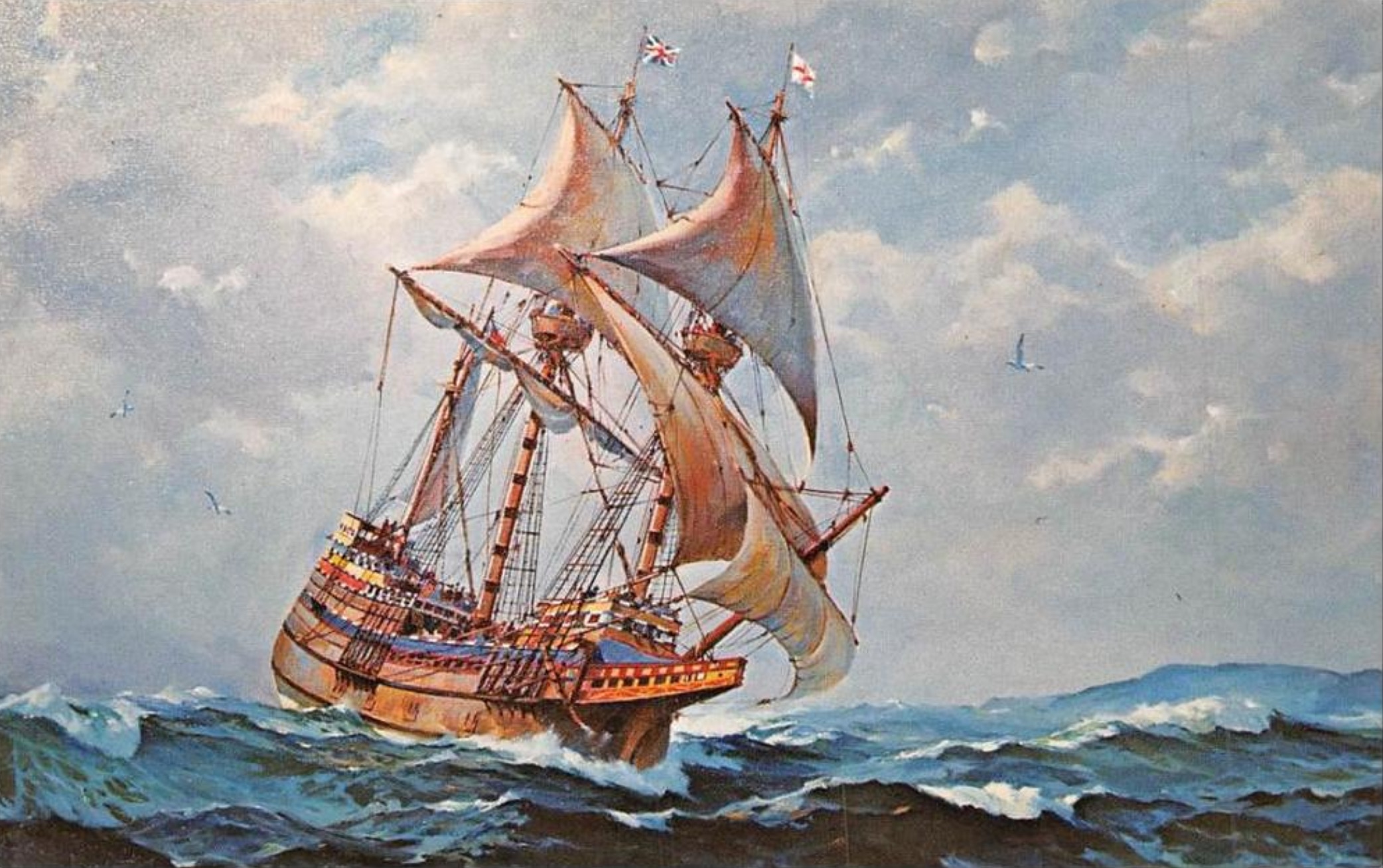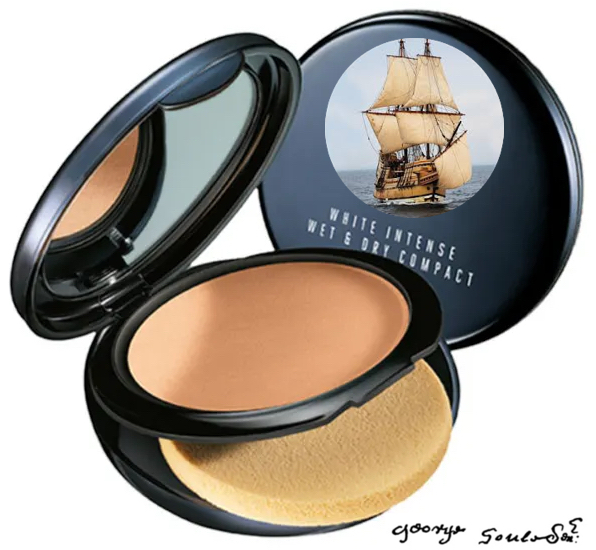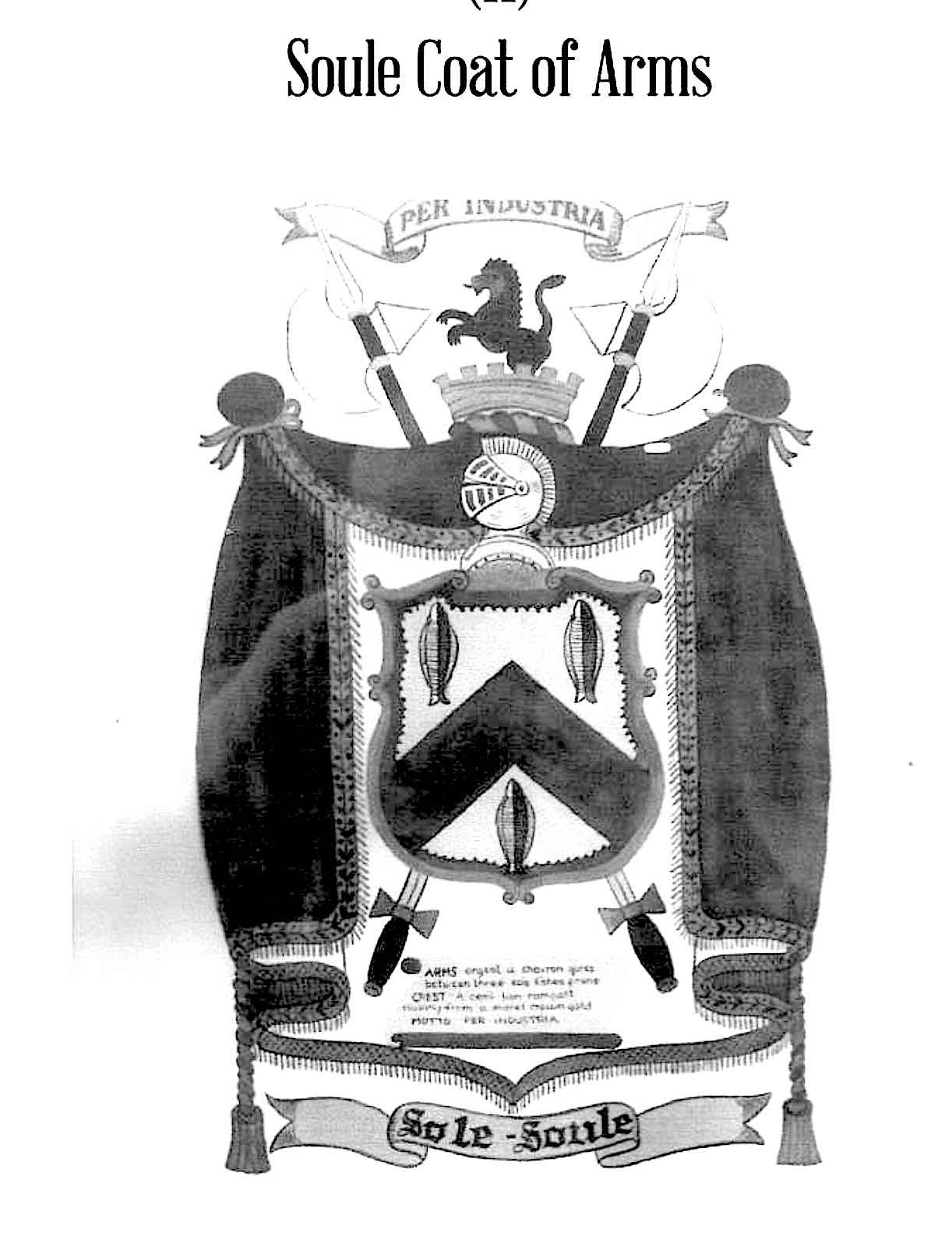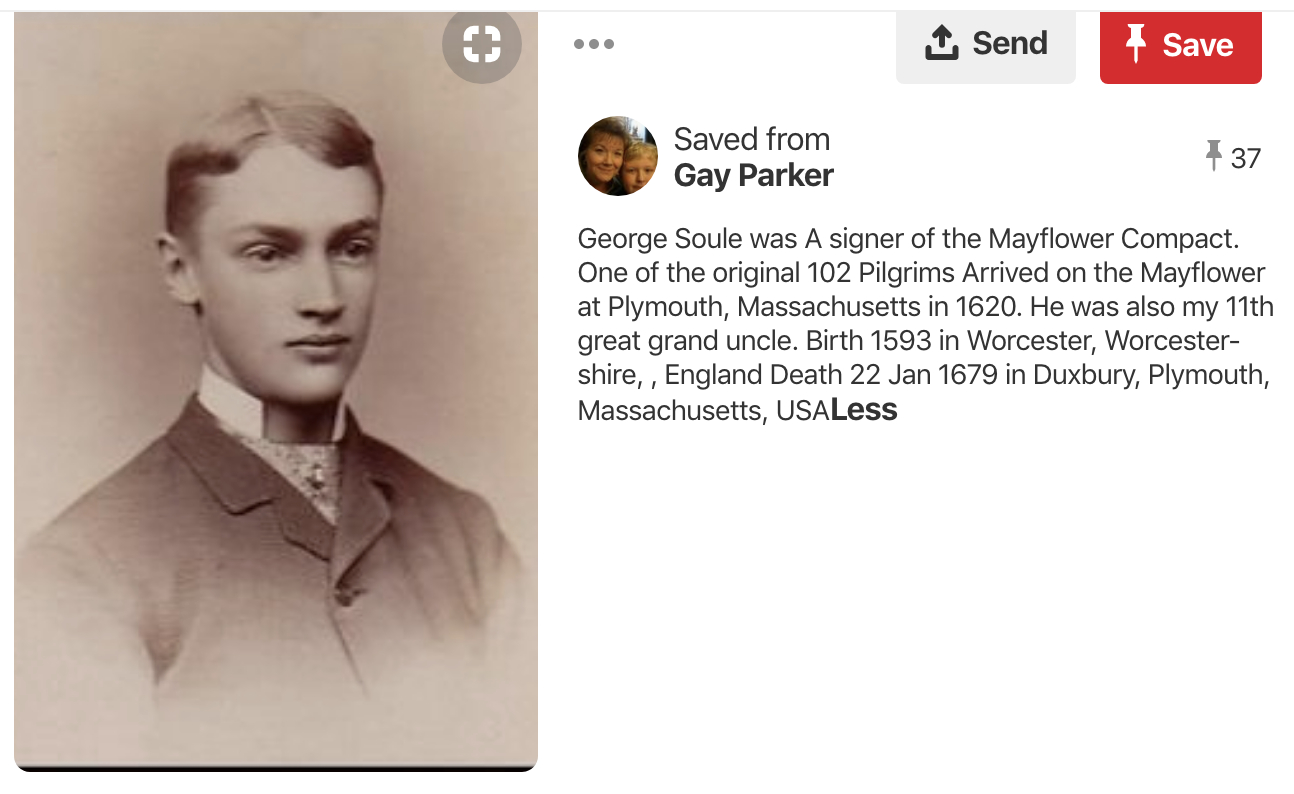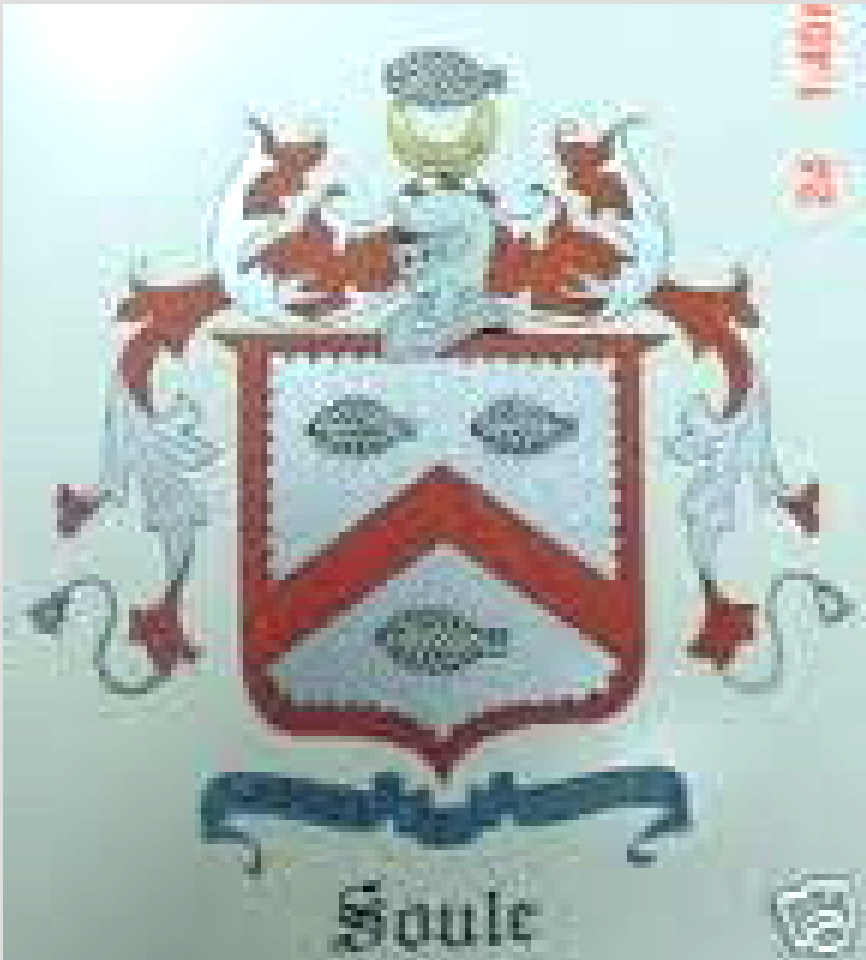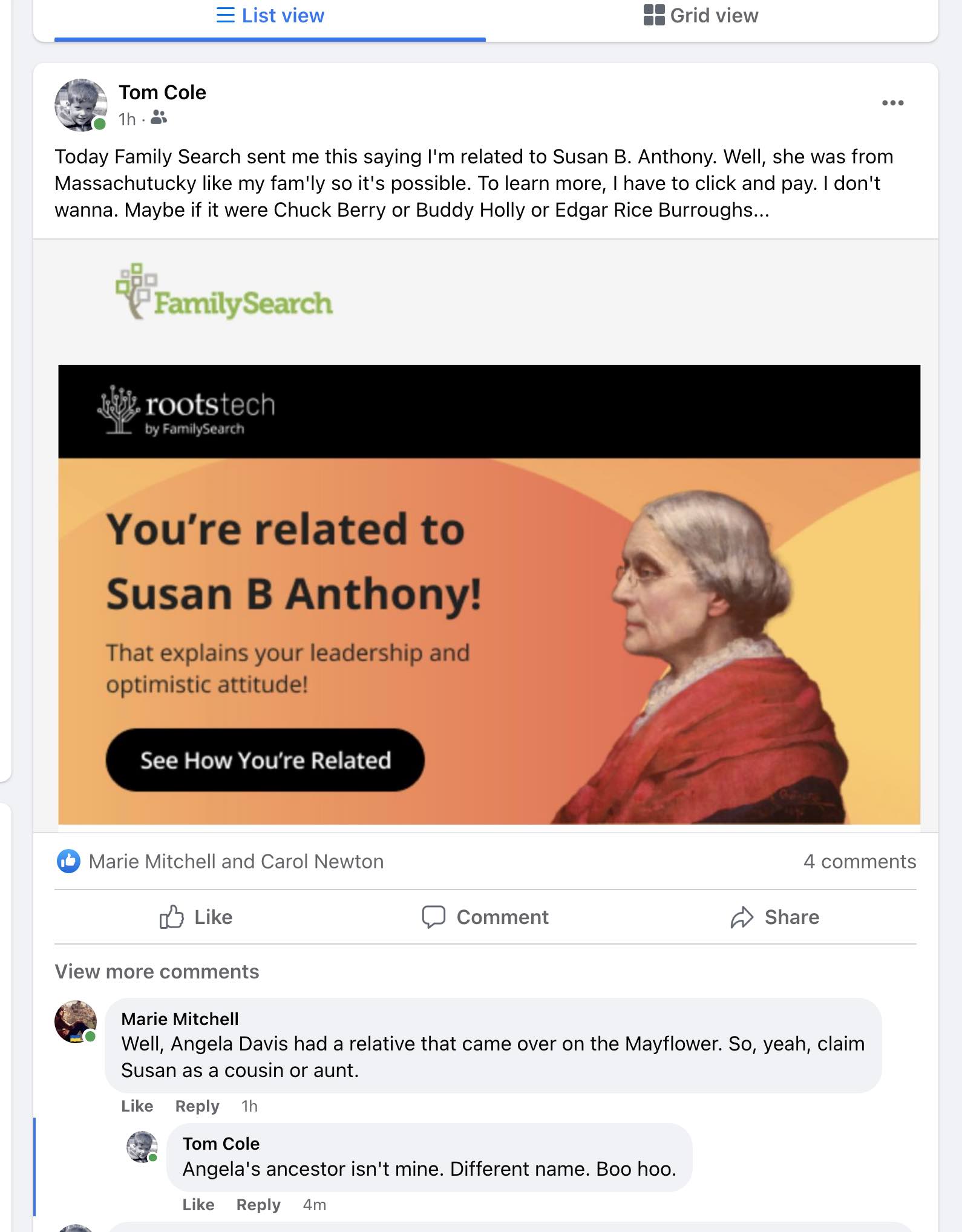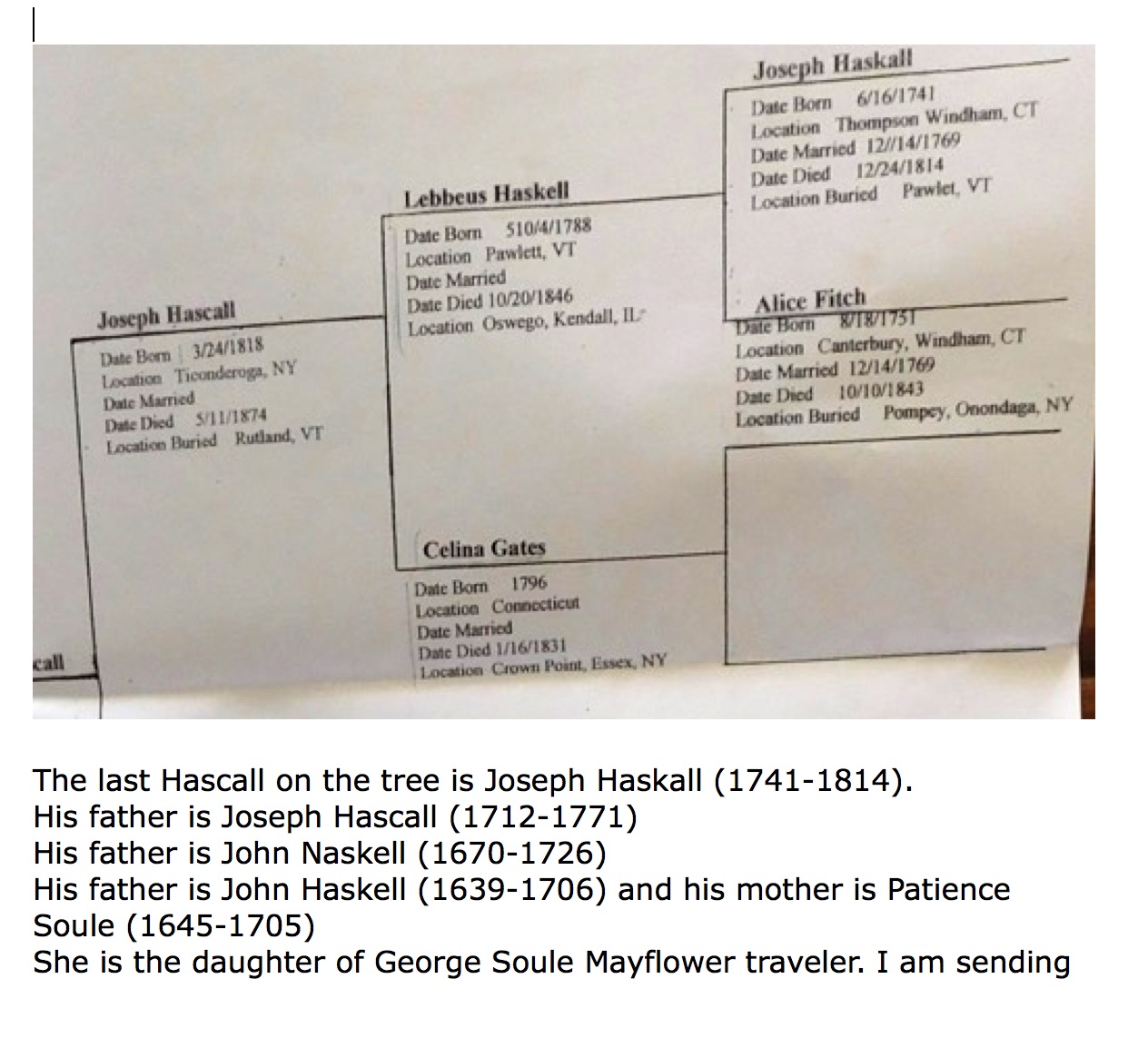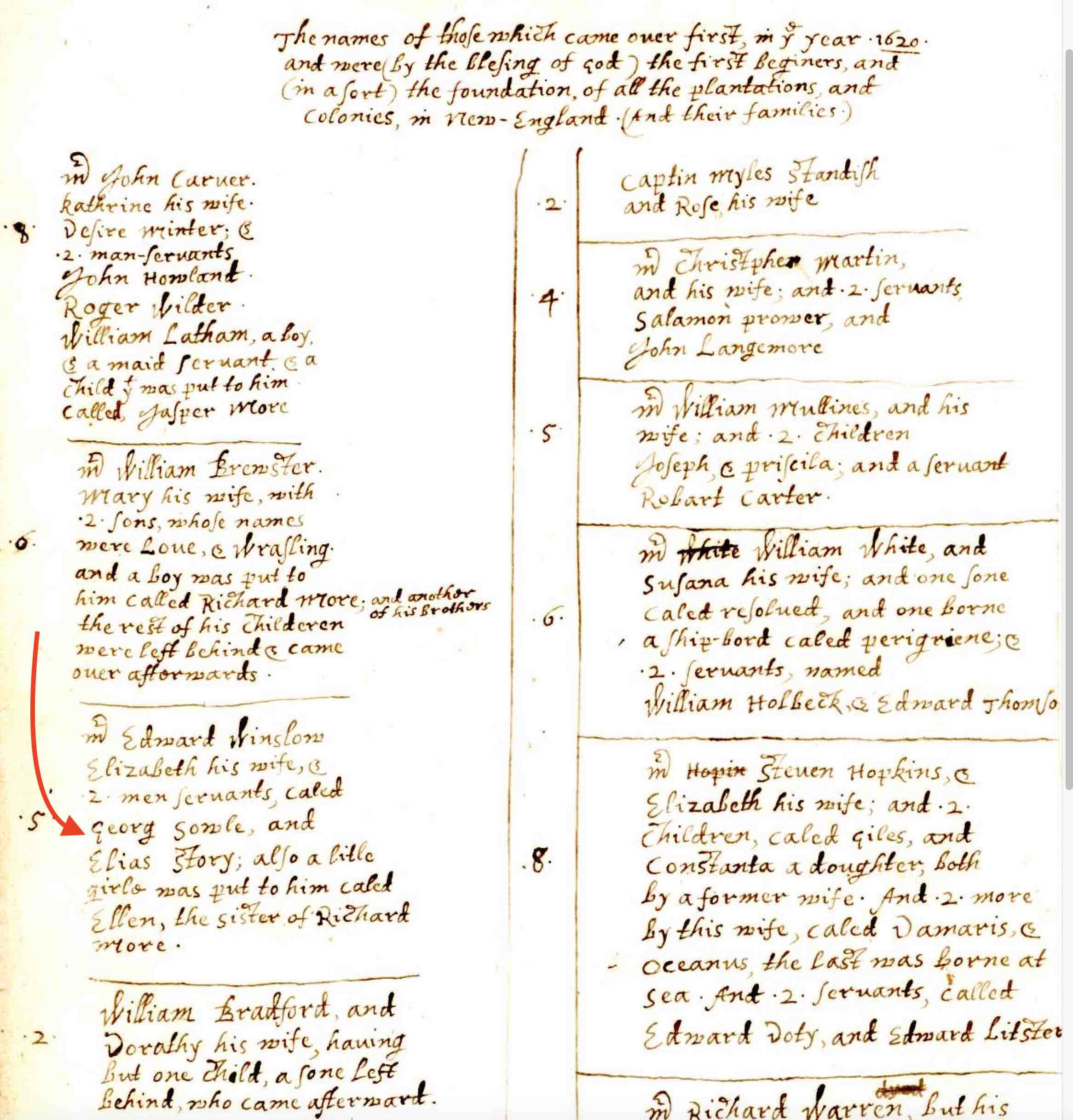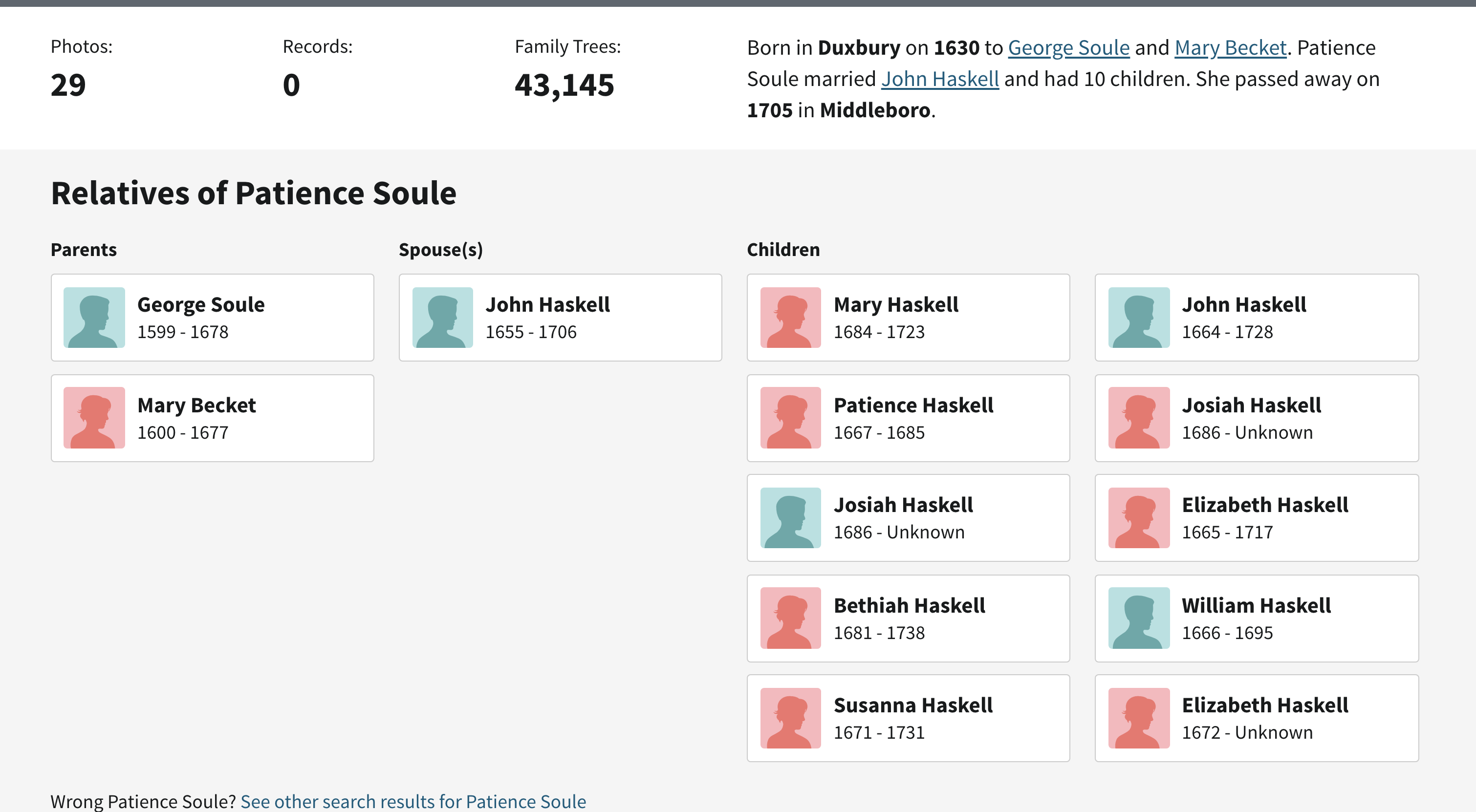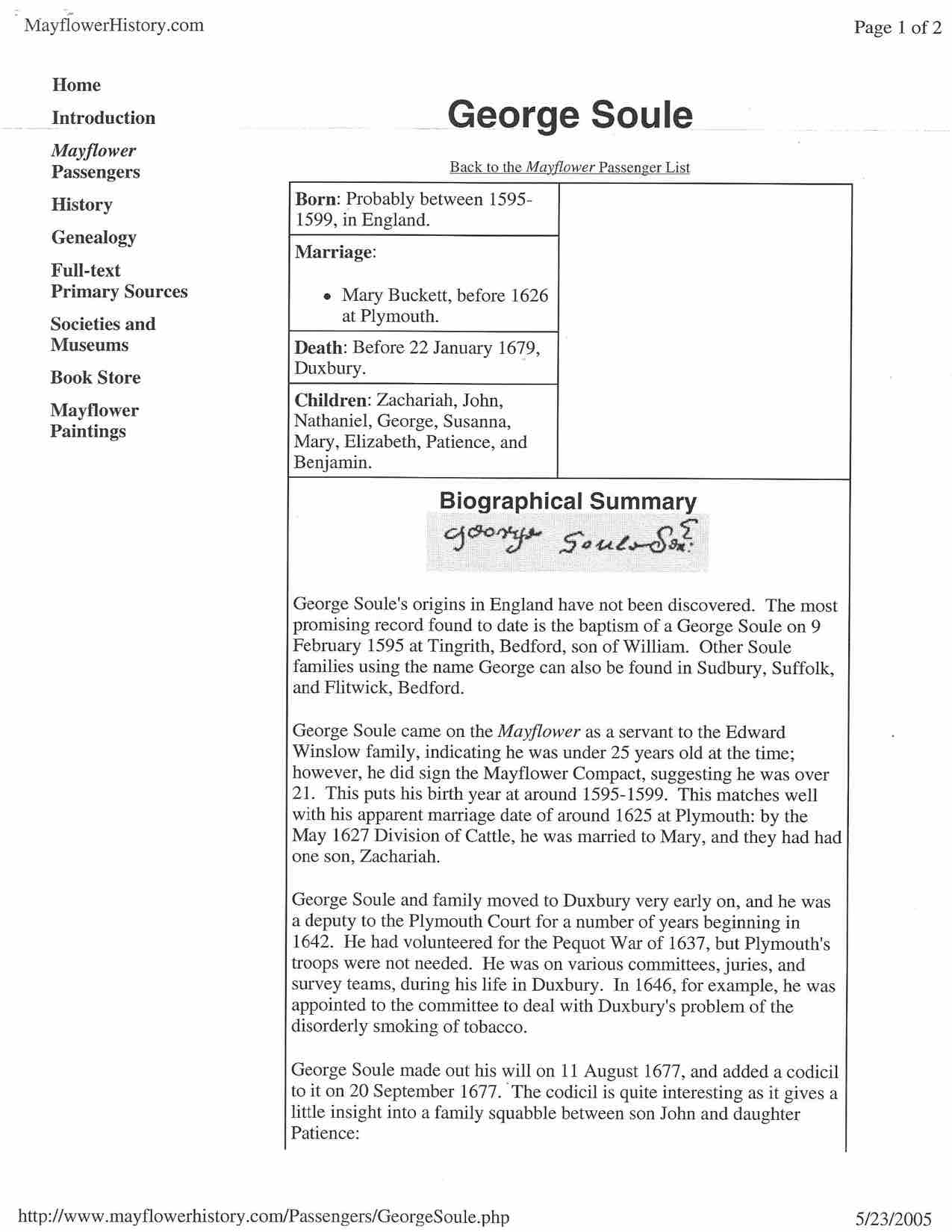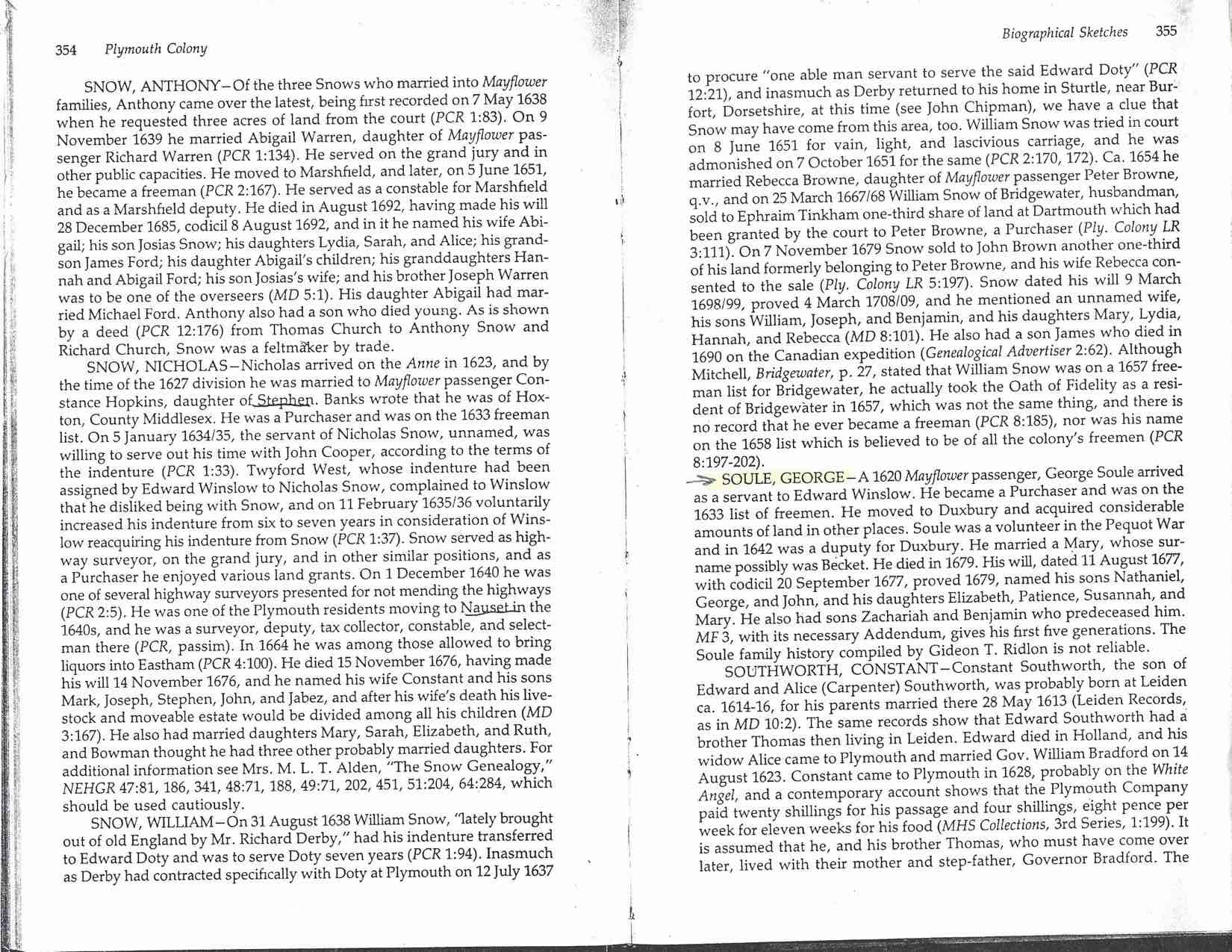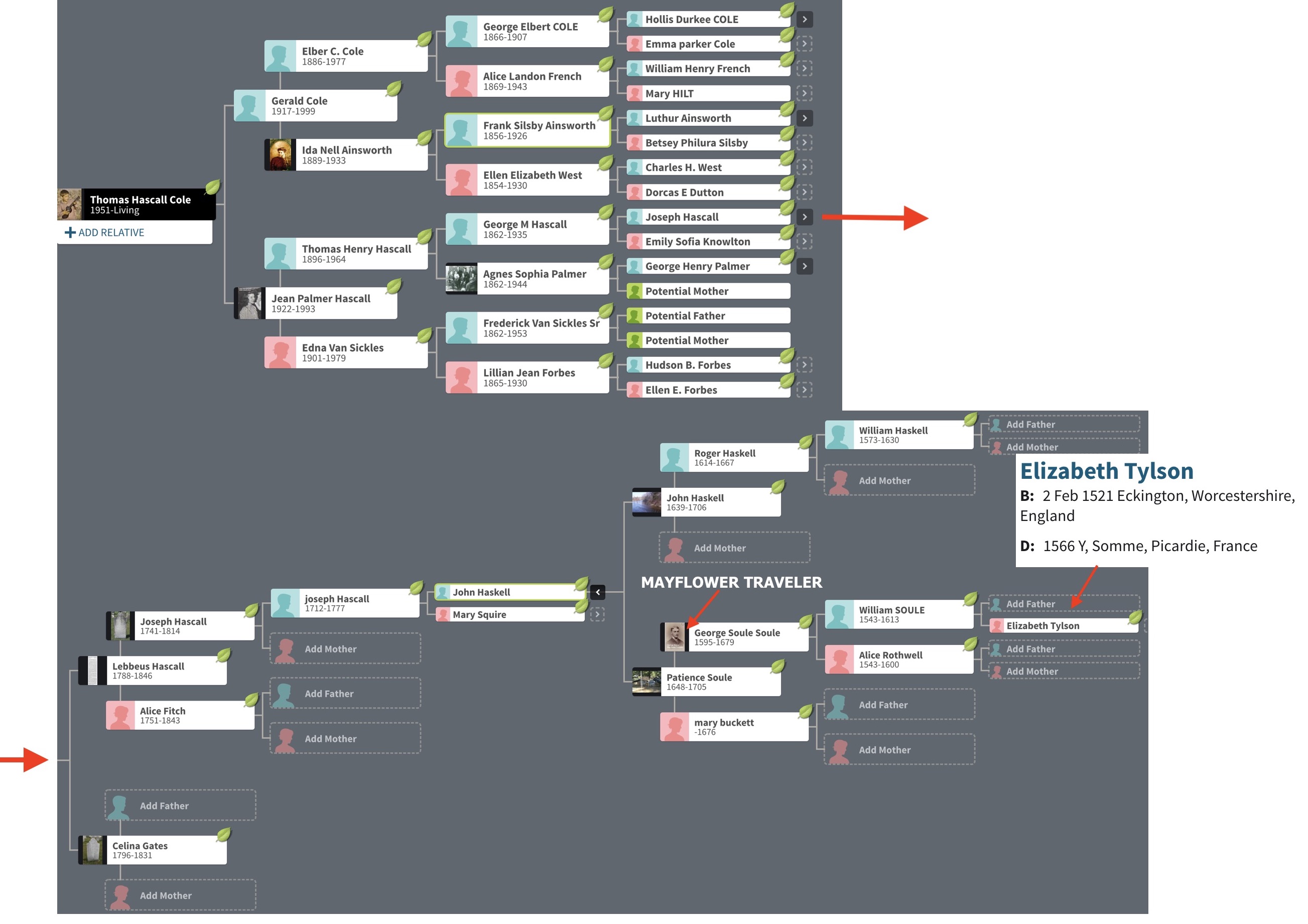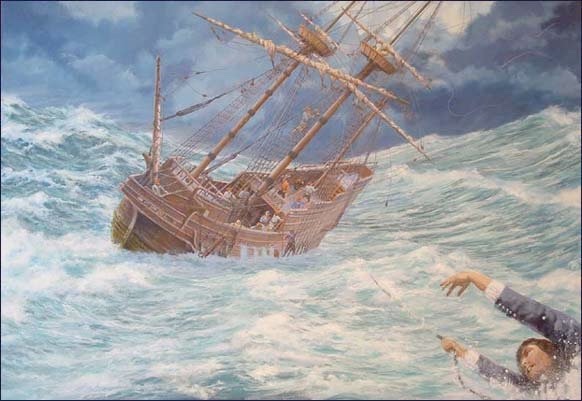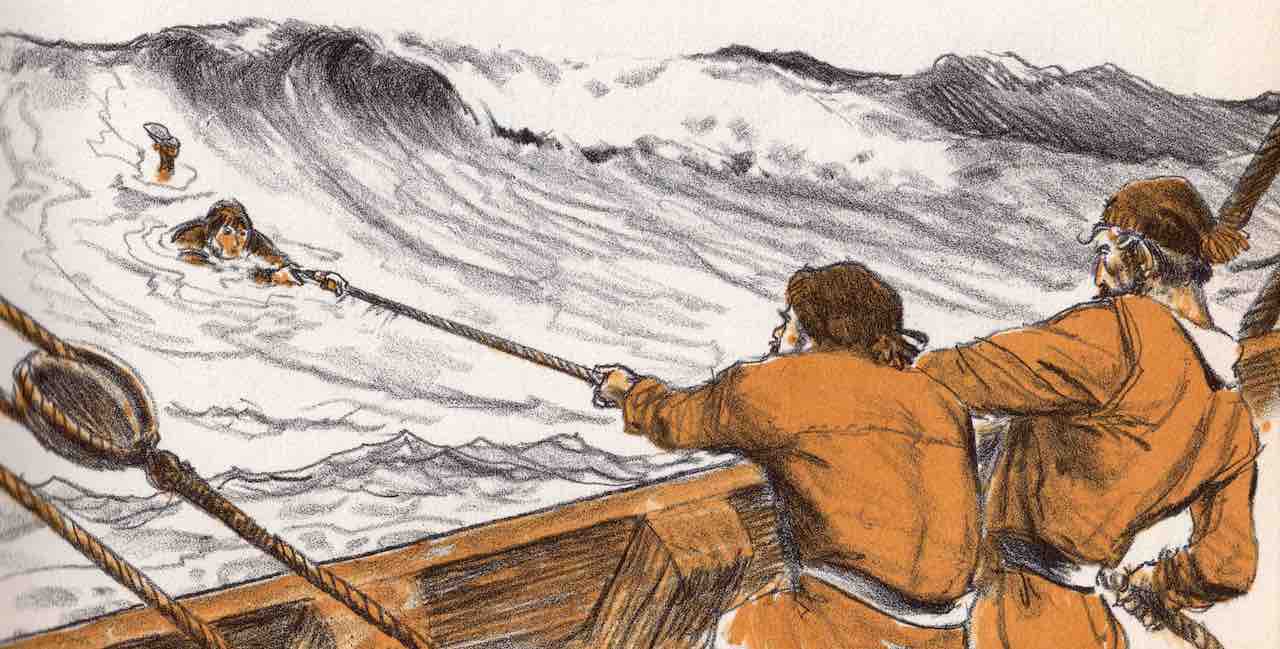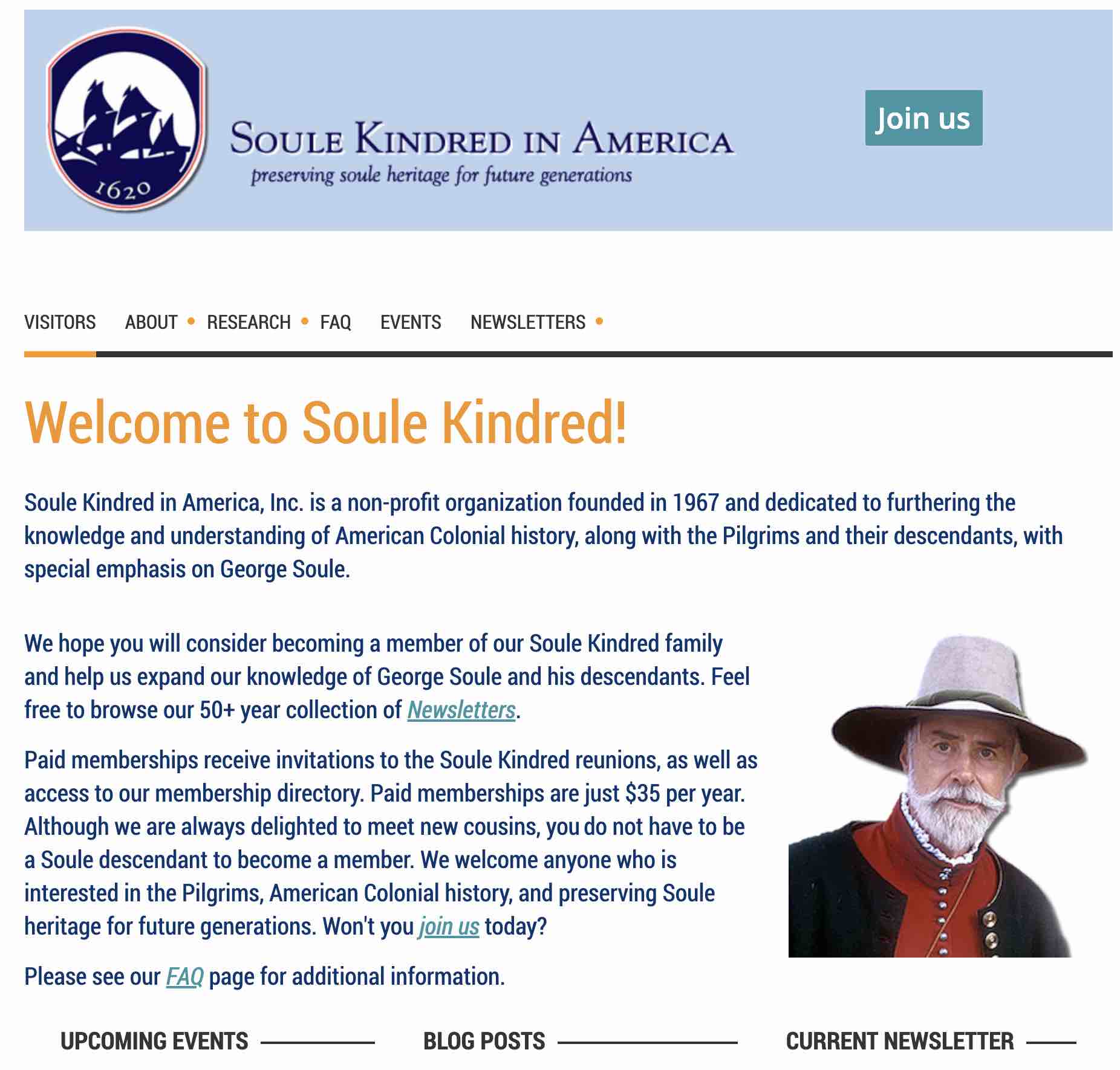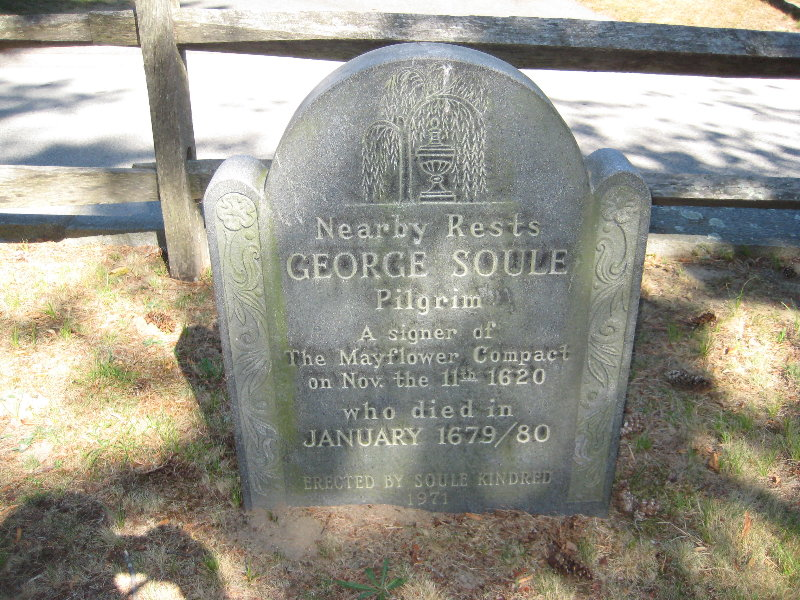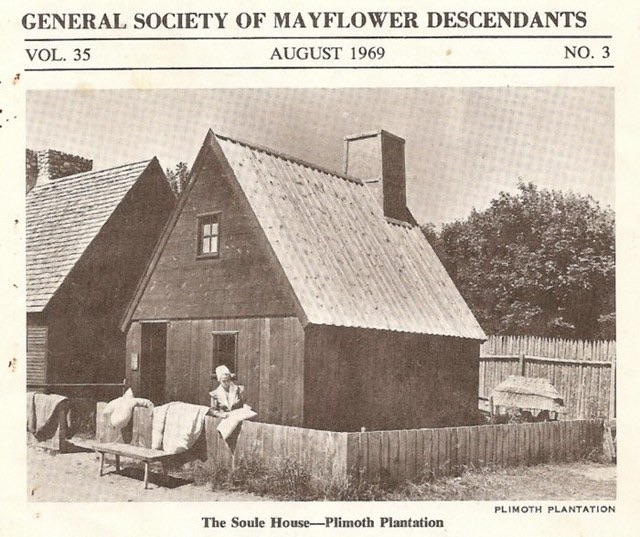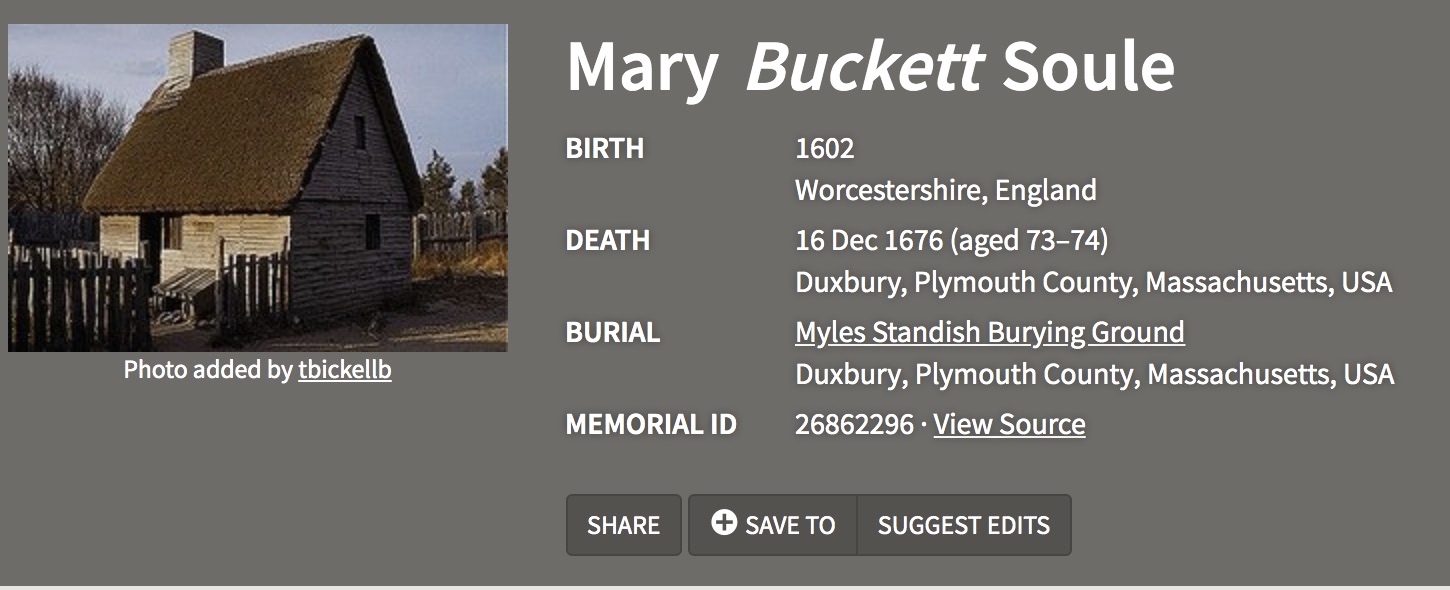|
Mary Buckett Soule
BIRTH
1602
Worcestershire, England
DEATH
16 Dec 1676 (aged 73–74)
Duxbury, Plymouth County, Massachusetts, USA
BURIAL
Myles Standish Burying Ground
Duxbury, Plymouth
County, Massachusetts, USA
MEMORIAL ID
26862296 · View Source
SHARE
SAVE TO
SUGGEST EDITS
MEMORIAL
PHOTOS 1
FLOWERS 182
For close to 400 years the origins of Mary, wife of the
1620 Mayflower passenger George Soule, mother of nine
known children, remains unknown. She likely was born in
England in the early 1600s and died, per son John, in
December 1676 at Duxbury, Mass., but son John did not
provide her age at death.
Mary's surname has
historically been written as Bucket, based on a singular
record in 1623, with some writers writing her maiden name
as Becket, but whether either was her maiden name remains
unconfirmed. The most recent scholarly treatment regarding
Mary's possible origins was published in the December 2013
issue of the Mayflower Descendant by Caleb Johnson, a
noted Mayflower pilgrim researcher. While Mr. Johnson's
research uncovered a potential promising lead, no concrete
conclusion can yet be drawn as to Mary's origins.
Mary
arrived at Plymouth in 1623 aboard the Ann, the third ship
to bring groups of Pilgrim families to Plymouth. Whether
she knew her eventual husband, George Soule, in England
prior to George sailing in 1620 on the Mayflower is
unknown. She is not considered to have been an indentured
servant upon arrival as she is not shown in Plymouth's
initial 1623 division of land as attached to a specific
person or family. In the latter division she was allotted
one acre of land "next to John Rogers" who is otherwise
shown as having been allotted two acres at a different
location than Mary.
George Soule and wife Mary had nine
known children, eight of which were born by 1650. This is
reflected in the 1650 Journal of William Bradford by the
entry "George Soule is still living and hath 8 children."
The ninth child, Benjamin, was born approximately one year
later in 1651, but died unmarried in 1676 at Pawtucket,
RI, a combatant and casualty of the King Philip's War with
the Massaquoit Indians.
On May 22, 1627 the Division of
Cattle was recorded in the Plymouth Colony Records. This
division was essentially a complete census of 1627
Plymouth. At the date of division Zachariah was George and
Mary's only living child.
The known children of George
Soule and wife Mary, the exact order unknown but
likely:
• i. Zachariah Soule, b. before May 22, 1627, d.
before Dec. 11, 1663 as a combatant in the French &
Indian War; on the latter date his estate was inventoried
at Duxbury, Mass. by John Alden and Constant Southworth
with the estate falling to his brother John after
settlement. He m. in 1646 a wife named Margaret whose
identity has never been uncovered. No known children have
been identified and the widow is believed to have
remarried and moved from Duxbury.
• ii. John Soule, b.
circa 1632 (deposed Mar. 8, 1705/6 at aged "about
seventy-four years"), d. intestate at Middleborough, Mass.
before Nov. 9, 1707, the date his 2nd wife attested to his
estate inventory; m. 1) by about 1656 Rebecca Simonson,
daughter of Moses Simonson, by whom he had eight known
children; m. 2) by 1679 Esther (Delano) Samson, daughter
of Philip Delano and widow of Samuel Samson, by whom he
had three children.
• iii. Nathaniel Soule, b. circa
1637, d. intestate at Dartmouth, Mass. prior to Oct. 12,
1699, the date of his estate inventory; m. a wife named
Rose by whom he had at least four children.
• iv. George
Soule, Jr., b. circa 1639 (deposed Mar. 1, 1672/3 "aged 34
years or thereabouts"), d. testate at Dartmouth, Mass. May
12, 1704; m. an unidentified wife named Deborah, who d. at
Dartmouth in Feb. 1709/10. Eight known children of the
family.
• v. Susanna Soule, b. circa 1642, d. Jan. 2,
1715/16 at North Kingstown (q.v. N. Kingston), Rhode
Island; m. Francis West, s. of Matthew, who d. at N.
Kingstown Jan. 2, 1695/96. Nine children of the family.
•
vi. Mary Soule, b. circa 1644, was living on Mar. 26, 1720
at Duxbury, Mass.; m. John Peterson, who d. testate at
Duxbury between Apr. 29, 1718 (date of will) and Mar. 26,
1720 (date of estate inventory). Purportedly nine children
of the family.
• vii. Elizabeth Soule, b. circa 1646, d.
circa 1700 at Woodbridge, New Jersey; m. July 23, 1667,
Francis Walker, who d. circa 1702 at Woodbridge.
Purportedly four children of the family.
• viii. Patience
Soule, b. circa 1648, d. Mar. 11, 1705/6 at Middleborough,
Mass.; m. in Jan. 1666/7, John Haskell, who d. May 15,
1706 at Middleborough. Eight children recorded at
Middleborough.
• ix. Benjamin Soule, b. circa 1651, d.
unmarried Mar. 26, 1676 at Pawtucket, Rhode Island a
combatant in King Phillips War against the Massaquoit
Indians.
|
